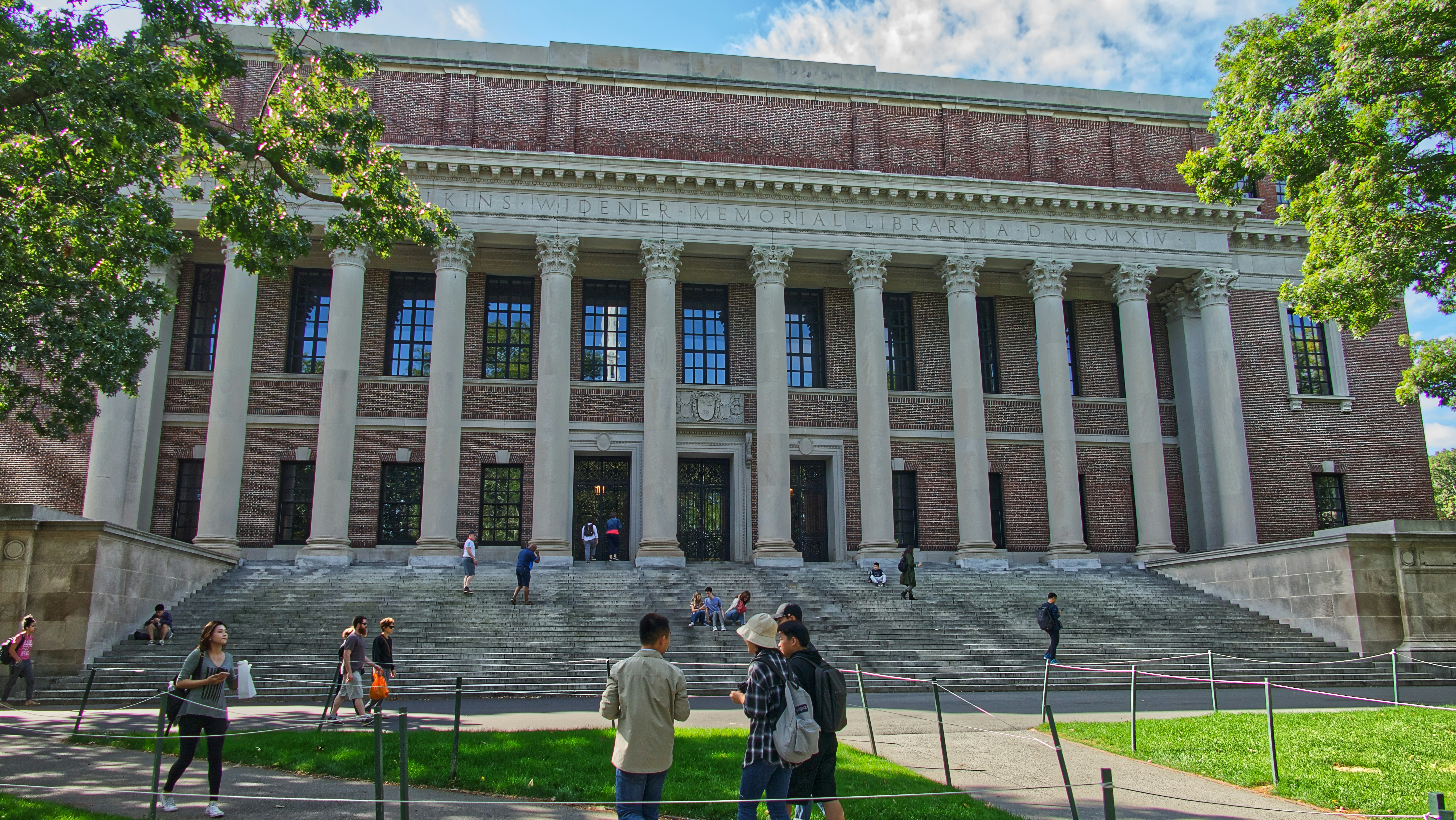[WORLD] Students at Harvard University staged a major protest yesterday following the U.S. government’s announcement that it plans to terminate all remaining financial contracts with the institution—President Donald Trump’s latest bid to exert unprecedented control over the nation's most prestigious university.
The move, which could strip Harvard of an estimated $100 million in funding, sparked outrage on campus, drawing hundreds of students to protest what they view as an escalating campaign by the Trump administration to pressure the university into yielding control over its curriculum, admissions, and research operations.
The demonstration comes against the backdrop of deepening tensions between the White House and elite universities. Trump has repeatedly accused such institutions of promoting what he describes as “anti-American” ideologies. Earlier this month, the administration issued a contentious executive order aimed at compelling universities to provide greater transparency around course content—a directive critics say is designed to curb academic freedom. With its global stature and influential alumni, Harvard has become a central front in the administration’s ideological offensive.
Placards reading “Trump = traitor” dotted the protest crowd, which chanted slogans like “who belongs in class today, let them stay,” referencing the uncertain status of Harvard’s international students following the government’s abrupt revocation of the university’s authorization to host them through the federal student and exchange visitor program.
A federal judge granted a temporary restraining order pending a hearing scheduled for today—the same day as Harvard’s commencement ceremony, drawing thousands of graduating students and their families to Cambridge, Massachusetts.
While the restraining order offers temporary relief, legal analysts warn that the broader legal confrontation could take months to resolve. “This case is about more than Harvard—it raises fundamental questions about federal overreach in higher education,” said constitutional law expert Emily Carter. “If this administration succeeds, it could set a dangerous precedent for federal intrusion into academic governance.”
The White House has remained steadfast in its approach, arguing that public funds would be better allocated to vocational programs and institutions that promote what it terms “American values.”
“The president wants to redirect taxpayer money toward trade and state schools that are training the workforce of tomorrow and upholding the values our country was built on,” White House spokesperson Karoline Leavitt told Fox News. “We need more welders and fewer gender studies PhDs from Harvard.”
The administration’s remarks have drawn fierce criticism from education leaders, who warn that cutting funding from elite research institutions could compromise America’s global leadership in science and innovation. “Harvard contributes billions annually to vital research,” said Dr. Lisa Monroe of the American Council on Education. “Defunding it doesn’t just hurt students—it risks derailing medical and technological breakthroughs that benefit everyone.”
As helicopters circled overhead, the protest took place in proximity to Harvard Square, where graduates in academic robes mingled with family members at pre-ceremony receptions.
“I have friends, peers, professors who are facing deportation or forced transfers,” said Alice Goyer, a U.S. student protesting in her cap and gown. “As someone with the privilege to stay, I feel responsible to speak out.”
Jack, a British student graduating with a degree in the history of medicine, echoed the concern. “Even if the courts strike this down, the damage is done,” he said. “International students are uncertain if they can stay—or even come back. I’m reconsidering my plans for a PhD here. Six years is a long time under this cloud.”
This uncertainty appears to be impacting broader trends. A recent Institute of International Education survey shows a 15% decline in foreign student applications to U.S. universities this year, with many citing political instability. “The U.S. is undercutting its appeal by turning away global talent,” said the institute’s director, Mark Phillips. “Meanwhile, countries like Canada and the UK are seizing the opportunity to attract those students.”
Harvard has launched multiple legal challenges to the administration’s actions, with legal experts suggesting the latest contract cancellations could be added to its ongoing cases.
Meanwhile, alumni are also preparing to take action. Crimson Courage, a grassroots alumni network, held a mass webinar to raise legal funds and announced plans to file a separate lawsuit against Trump on June 9, filmmaker and alumna Anurima Bhargava revealed during the meeting.
The $100 million in contract cuts announced yesterday are part of a broader dismantling of federal ties with Harvard, which has already seen billions in grants frozen and contracts revoked in recent weeks. The university is seeking judicial relief to restore both its funding and its ability to support international students, who comprise 27% of its student body.
Albany Law School professor Ray Brescia said the legal foundation of Harvard’s case is strong. “The judiciary isn’t likely to sit this one out. If the Trump administration takes it further, higher courts are poised to strike it down,” he said.
Despite legal headwinds, Trump vowed Monday to persist, arguing that Harvard’s international student body includes “radicalised lunatics” and “troublemakers.”
The escalating battle underscores a fundamental conflict over the role of government in shaping higher education—and raises questions about the future of academic freedom in the U.S.









.jpg&w=3840&q=75)





